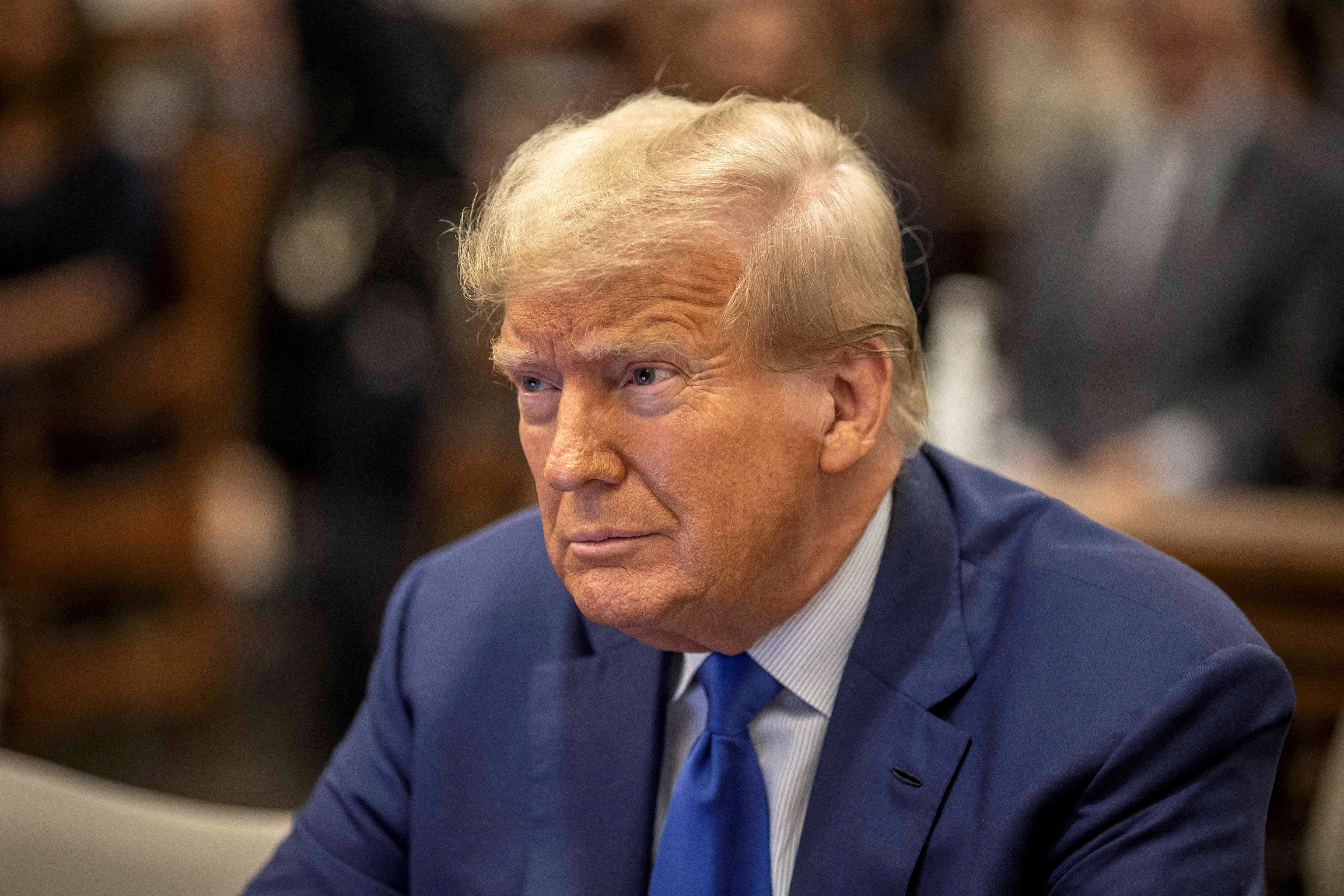Colorado judge rules to keep Trump on GOP primary election ballot
A lawsuit sought to bar Trump from the state’s Republican primary ballot.
Former President Donald Trump will be able to be on Colorado's Republican primary ballot, a Denver District Court judge ordered Friday evening.
Judge Sarah B.Wallace ruled against a group of six Republican and unaffiliated voters in Colorado, represented by the watchdog group Citizens for Responsibility and Ethics in Washington (CREW), who filed a lawsuit in September that sought to bar Trump from the state's Republican primary ballot under Section 3 of the Fourteenth Amendment, which disqualifies people from running for office if they've engaged in "insurrection or rebellion" against the U.S. The petitioners claimed his activity surrounding Jan. 6 invoked this "insurrectionist ban."
In a 102-page opinion, Wallace cited "competing interpretations" of the constitutional clause, and a "lack of definitive guidance in the text or historical sources" in order to rule its application to Trump.

"To be clear, part of the Court's decision is its reluctance to embrace an interpretation which would disqualify a presidential candidate without a clear, unmistakable indication that such is the intent of Section Three… Here, the record demonstrates an appreciable amount of tension between the competing interpretations, and a lack of definitive guidance in the text or historical sources. As a result, the Court holds that Section Three of the Fourteenth Amendment does not apply to Trump," Wallace wrote.
The Trump team celebrated the Colorado judge's rejection of CREW's challenge to keep Trump off the GOP ballot in 2024 by maintaining that the efforts to invoke Section 3 of the 14th Amendment against Trump were election interference-- noting that voters' "Constitutional right" to electing Trump was preserved.
"We applaud today's ruling in Colorado, which is another nail in the coffin of the un-American ballot challenges… These cases represent the most cynical and blatant political attempts to interfere with the upcoming presidential election," Trump spokesperson Steven Cheung wrote in a statement.
Cheung also said, "The American voter has a Constitutional right to vote for the candidate of their choosing, with President Donald J. Trump leading by massive numbers. This right was correctly preserved in Colorado today."

CREW said in a statement that they will be filing an appeal to the Colorado Supreme Court "shortly."
"Today was not the end of this effort, but another step along the way," said CREW President Noah Bookbinder.
The organization highlighted the fact that the judge's order was the "first time a presidential candidate has been found to have engaged in insurrection, and it was found after a thorough evidentiary hearing."
"The court's decision affirms what our clients alleged in this lawsuit: that Donald Trump engaged in insurrection based on his role in January 6th," said Bookbinder. "We are proud to have brought this historic case and know we are right on the facts and right on the law. When we filed this case, we knew it likely would not end at the district court level."
Colorado's GOP primary ballot has to be certified by Jan. 5, so the appeal would move quickly. The state votes for their party nominees on Super Tuesday, which is March 5.
The Colorado decision is consistent with a string of recent victories for Trump related to several major attempts to bar him from individual states' 2024 ballots under Section 3 of the 14th Amendment.
Judges in Michigan and Minnesota over the past week have ruled that Trump could remain on the ballot in both states, dismissing lawsuits filed by citizens and Free Speech For People (FSFP), another watchdog organization that claimed the former president should be barred because of his actions around Jan. 6.
FSFP officially filed their appeal on Thursday with the Michigan Court of Appeals after Michigan Court of Claims Judge Robert Redford dismissed their lawsuit on Tuesday.
Colorado held the only evidentiary hearing of the three lawsuits, with five days of witness testimony and review of evidence completed in early November. Both parties delivered closing arguments on Wednesday.



